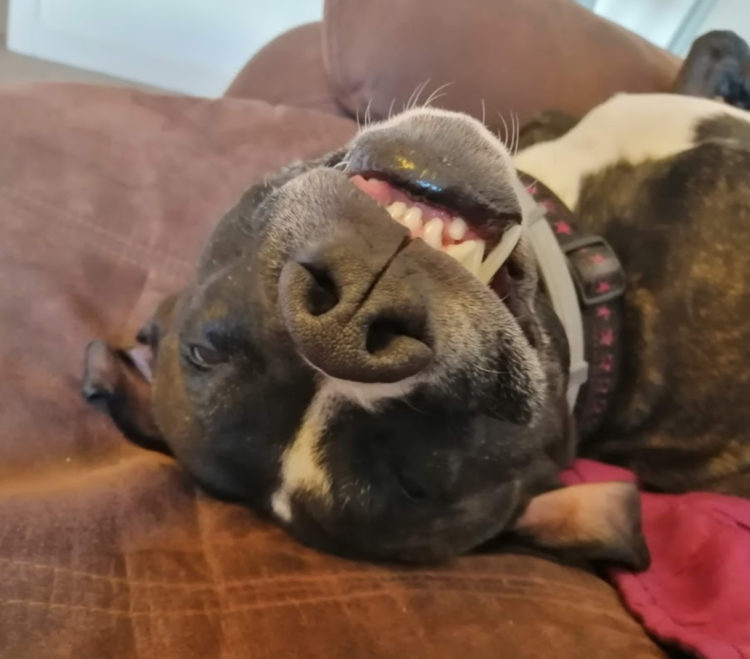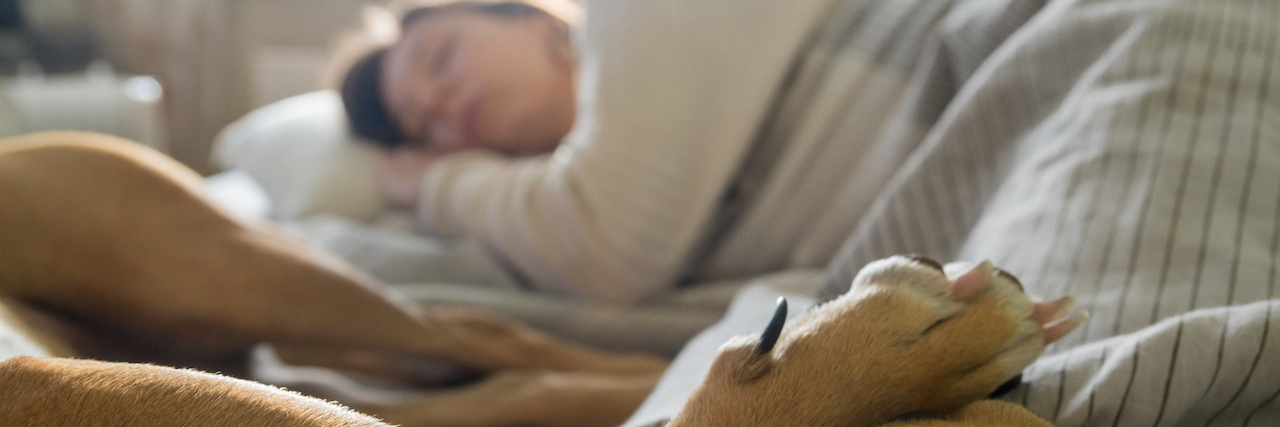It’s well-known that petting an animal can release endorphins and lower cortisol.
Furry friends can provide comfort and therapy for anyone who may need it. People living with chronic illness will often benefit from those happy chemicals to help them cope with the loneliness that comes from being isolated.
- What is Fibromyalgia?
- What Are Common Fibromyalgia Symptoms?
Why are we judged for daring to own animal companions? It’s rooted in ableism and classism.
I used to work in a vet practice and was shocked at the attitude of some members of staff who thought that people with lower incomes shouldn’t own pets. One staff member also questioned why a person using a wheelchair would own dogs, saying “surely they wouldn’t be able to take them for decent walks.” Ignorance really does know no bounds.
My husband and I adopted our dog a year before I was diagnosed with a chronic illness. I had all of the symptoms back then but powered through, as many of us do, before being told to slow down. The stipulations from my husband before getting this dog was I would walk it and deal with anything to do with the dog by myself no matter what. This was my dog and he would only help when absolutely necessary. He had not grown up with animals so didn’t see the appeal at the time. All of this to which I happily agreed. I was so excited to finally have a pet again; little did I know the subject would be laden with heartache and guilt in the years to come.
As my symptoms increased and I finally pushed for a diagnosis, I started to fail in my duty of looking after this dog. Not being able to make it to my own bathroom on my own made it impossible to take him for the walks he needed.
My husband, seeing the struggle I was going through (and now also bonded to this strange hairy creature), stepped up to the plate by taking the dog out for walks when I needed to rest. He encouraged me to come along with him when I could, which was not always possible but enjoyable when it was.
Unfortunately, this did not come without its criticism. As a lot of us know who have developed chronic and invisible illnesses, it’s a job in itself to convince those who knew us before that we can no longer do the things we used to. I remember hubby joking with a family member about our deal for getting the dog and how now he takes him out more often than I do. I think my heart broke when they joked back that we would need to get rid of the dog then, since I wasn’t keeping up my end of the bargain.
Of course, I laughed away with them because “it’s only a joke” after all, but I broke a little bit inside. I felt like a failure and like I didn’t deserve to own a pet. I had “broken the deal” and this was just another way I was a burden to my ever-patient husband. This joke resurfaced twice more before I had the courage to confess to him that it really hurt. To his credit, he never brought it up again.
This raised the question in my mind though, one that we as disabled people constantly battle with day in and day out: Why don’t we deserve what everyone else has? The real answer is that we do, but for some reason society makes us feel like we don’t.
When you are disabled you have to make adjustments to every facet of your life, often needing to rely on help from others for even rudimentary matters. We are also expected to be everlastingly patient and grateful for the most basic help we do receive, and if we dare to want more than survival, we are scorned.
My dog has been a great source of companionship and therapy for me when I have been sad, lonely or in pain, but he has also been a massive source of guilt. I have researched and found ways to keep him stimulated when I cannot take him for a long enough walk or when I can only bear letting him out to the garden. He loves cuddling and we play games, but even this can be hard for me some days. The comments of previous colleagues and loved ones ring in my ears. Am I being selfish? Should I give him up, like I have given up muay thai boxing, going to rock gigs, a fulfilling career and so much more?

I am being selfish, and I know it. My dog may get bored sometimes and my husband may not have signed up for this, but that dog is a part of our family. I couldn’t imagine life without him, and I don’t think my husband could either. He brings us so much joy, even when he is having a farting attack due to his sensitive stomach or when we need to steer him far, far away from that yappy cockapoo because he has fear-based aggression and small dogs seem to frighten him the most. We are so alike with our anxiety and trauma and our love of food and snuggles.
My whole existence is now based around asking for help and this is just another aspect. I will not apologize for needing support in living my best life. And neither should you!
Getty image by Photoboyko

